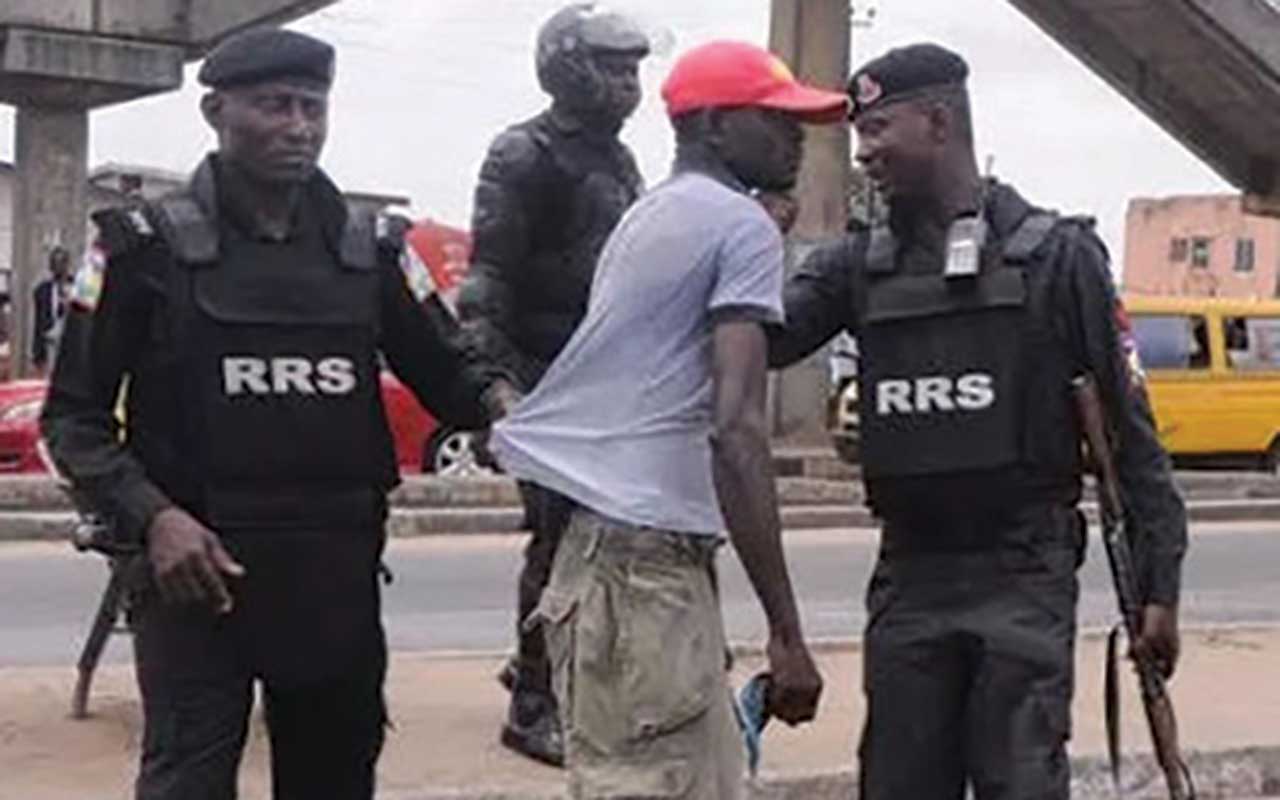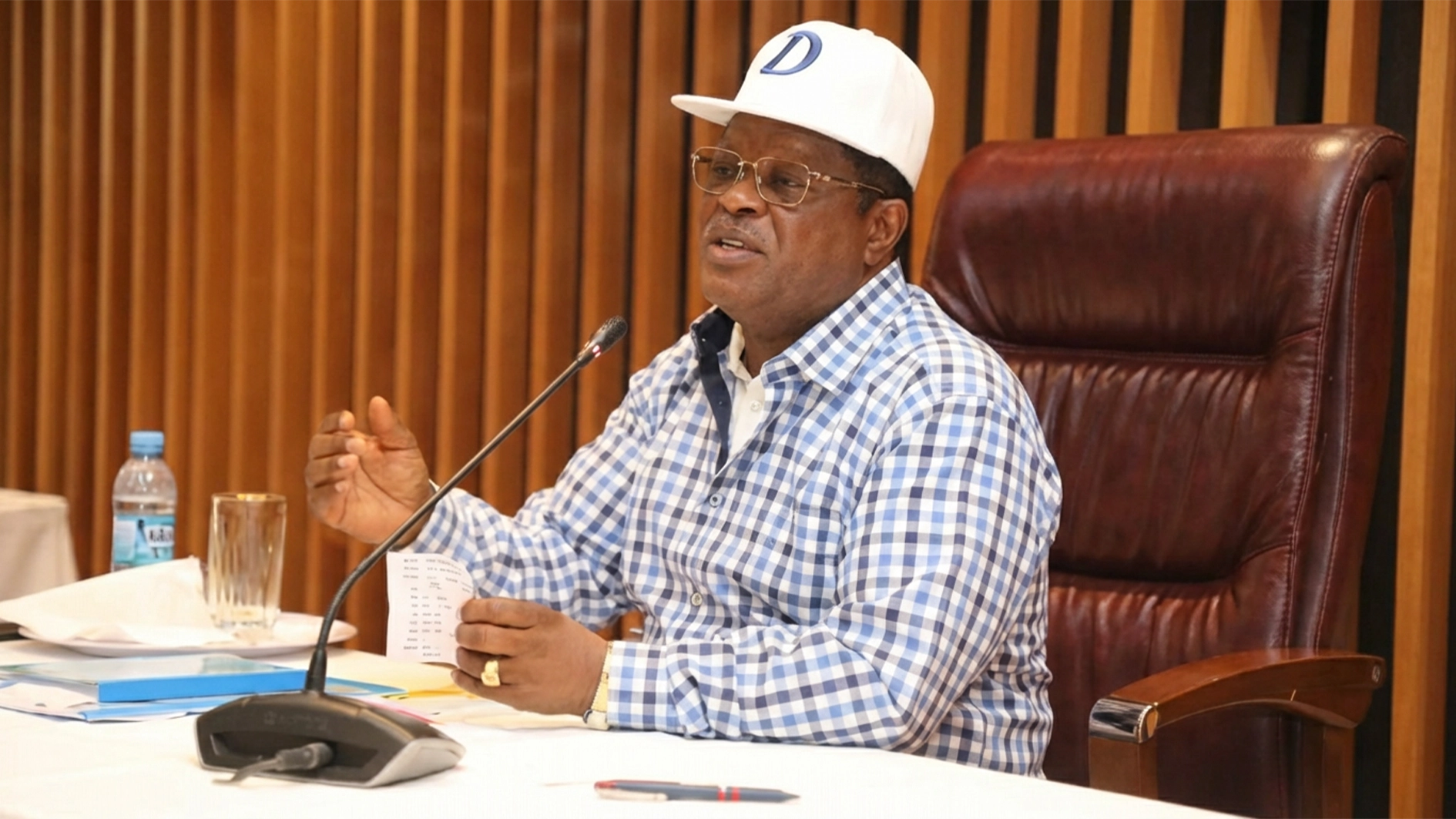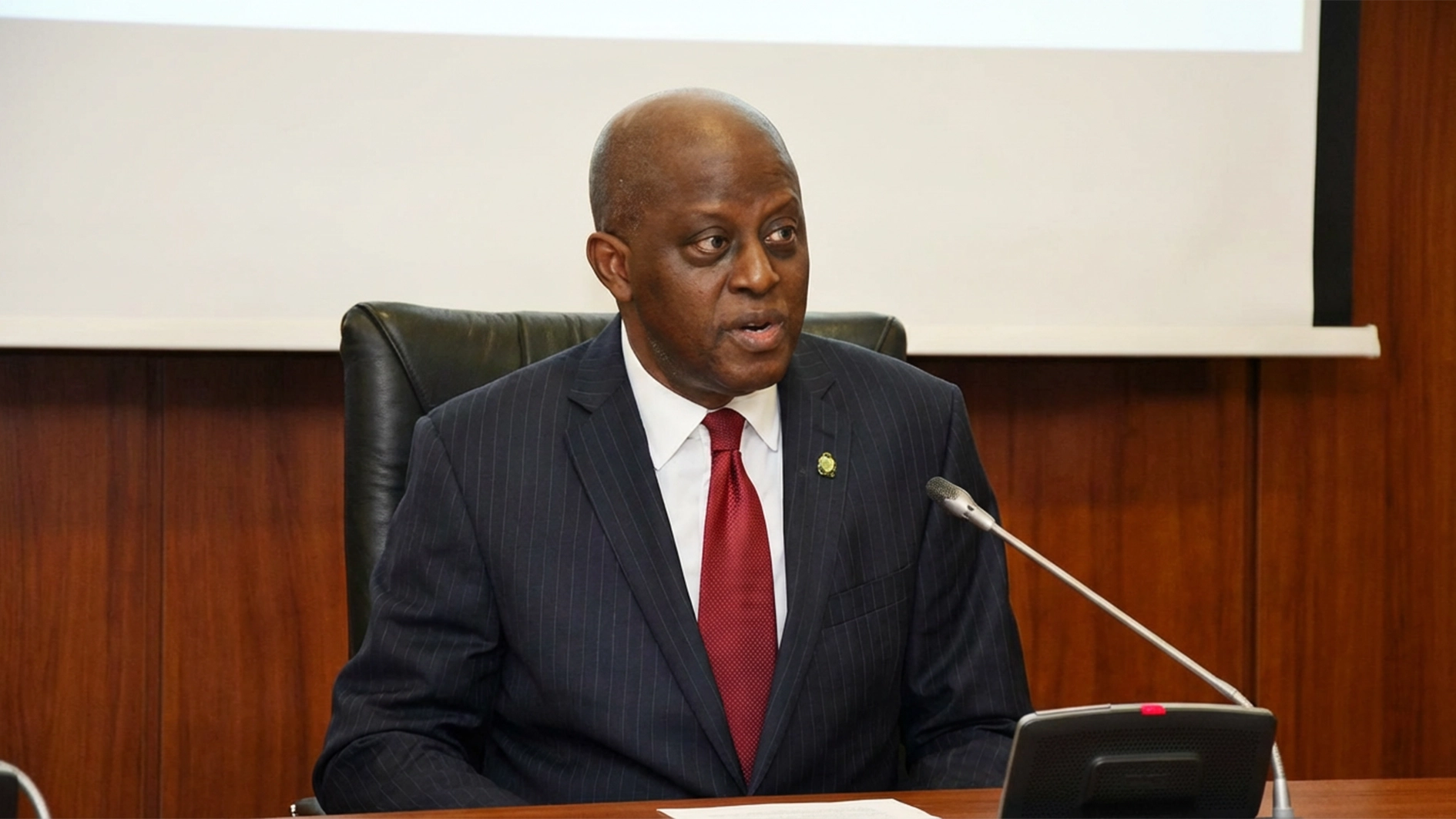Eight years after the Anti-Torture Act of 2017 was enacted to end police brutality, the law remains largely unenforced. Across police cells and detention centres, citizens are routinely dehumanised by unscrupulous state agents without adequate rebuke from the authorities. As the use of torture to extract confessional statements proliferates, there is a compelling need to end the brazen violation of human rights and impunity, which looms larger by the day. YETUNDE AYOBAMI OJO reports.
Fifty-two year -old Oseni Wasiu Adewale, a commercial bus driver residing at Olaiya Street, Mafoluku, in the Oshodi area of Lagos, was returning home after the day’s job when his vehicle developed a fault around the Iyana-Isolo axis of the Oshodi-Apapa Expressway.
Better known by his friends as Wasiu Royal, he managed to get the vehicle to his neighbourhood, Oshodi, where the nightmare that befell him began on what looked like an ordinary evening.
As the widower meandered his way with the food he had acquired for his three children late into the night, he encountered a police patrol team.
According to him, “after the police team accosted me, I showed the leader locally known in the area as ‘Spider’ the food that I had bought for my children. As they questioned my being out at such an hour, I begged the team leader to let me go, explaining in the process what I encountered, but without provocation, he hit me on my right leg with an iron rod. After being assaulted, I was eventually dragged to the police station, where I spent the night.
“Rather than being released the next day, I was transferred to the Task Force Office in Oshodi, where a magistrate sentenced me to three weeks in Kirikiri Correctional Centre.
“By this time, my leg had become swollen from the spot that Spider had hit me. The swollen portion later burst and turned into a big sore. Even after my release, it still dripped water and pained me immensely. At the clinic where I went to seek treatment, they demanded a police report – the same police that one of its officers nearly crippled me.
“On my return to the police station for the police report, I was threatened that they would come for me again if I complained. I am scared for my life.”
While no law, no report, and no press statement can undo Adewale’s suffering, he dreams of one thing – justice. But in a country where laws are not enforced, even justice limps like his wounded leg.
All the same, “I want the Inspector-General of Police, and the Lagos State Commissioner of Police to act against the officer, who almost killed me,” he pleaded.
Like Adewale, Kazeem Adeshina, 53, a roadside mechanic-turned-bus driver, carries a heavy burden. Arrested in June 2008 after police raided his home at Sango Ota, Ogun State, at about 1 a.m., in search of criminals, he spent 16 years in prison without trial.
“When the police arrived, they asked about my friend, Femi Olaniyan, whom I rented an apartment through. I took them to his house, but they ended up arresting me too for an offence that I did not commit. They took us to SARS office in Ikeja, where our hands were tied behind our backs, legs chained, and they tied a cement-filled bucket to my back and left me in the sun for days,” Adeshina, who operated in the Lagos Island part of the state, recalled, adding that he watched as his friend, Olaniyan, was shot dead in custody.
“When we were taken before a Magistrate in Ogba, I tried to explain my innocence, but the court ordered that I be remanded in prison custody. From 2009, I was never brought back to court until 2024, when a non-governmental organisation, Zarephath Aid, took up my case. That was when Justice Oyindamola Ogala finally ordered my release.”
But Adeshina’s freedom came too late. His wife had passed on; his only son had grown into a man without fatherly support. “I have nothing now. My son finished secondary school, but I can’t afford to sponsor him further,” he said quietly.
For Adeshina, the Anti-Torture Act that arrived while he was still behind bars did nothing to end his suffering.
Kano State-based engineer, Khalid Aminu, was one of the 39 suspects arrested by the Department of State Services (DSS) during the #EndBadGovernance protests on August 3, 2024, while demonstrating against hunger and bad governance.
Aminu, who was picked up alongside other young protesters in Kano while recounting how the service blocked them at the NEPA Roundabout and swooped away 11 of them, stressed that he and others were subjected to severe torture, with no access to family members and legal representation.
For Morufu Ajala, a commercial driver in Ibadan, Oyo State, life took a horrible turn one night four years ago. What began as a routine stop to buy fuel at Ramtex Filling Station in Ojoo, near the Area Bus Terminal in Ibadan, turned into a nightmare that lasted two years.
“I drove into the station around 8 p.m. to refill my vehicle, a Micra,” Ajala recalled, his voice weighed down by memories of trauma. “Suddenly, police patrol vans stormed the place, and without asking questions, they arrested almost everyone and took us to the station for detention.”
Ajala said they were taken to the Testing Ground Police Station, situated near Arisekola Mosque, in Ibadan North East Local Council, where they were accused of armed robbery, a charge he insists was fabricated.
“We were locked up, brutalised and denied bail. I spent two years in detention for a crime I knew nothing about,” he said. “When the case finally went to court, the judge ruled that I had no case to answer.”
Though acquitted, Ajala said his life has never been the same again. “Since then, I have been battling different ailments. The experience broke me,” he muttered.
 Across the country, thousands of Nigerians are tortured, brutalised, and maimed by law enforcement agencies and other state actors for matters ranging from petty offences to no offence at all. And as the days pass by, the list of victims of a system that protects abusers instead of punishing them grows exponentially.
Across the country, thousands of Nigerians are tortured, brutalised, and maimed by law enforcement agencies and other state actors for matters ranging from petty offences to no offence at all. And as the days pass by, the list of victims of a system that protects abusers instead of punishing them grows exponentially.
While justice is a distant dream for many victims, only a few dare to report their abusers for fear of being haunted. Those who try often face indifference from police authorities or contend with endless delays in the justice system, which grinds at a snail’s pace.
The Convention Against Torture and Other Cruel, Inhuman or Degrading Treatment or Punishment (commonly known as the United Nations Convention Against Torture (UNCAT) is an international human rights convention under the United Nations that aims to prevent torture and other acts of cruel, inhuman or degrading treatment or punishment around the world.
The Convention requires member states to take effective measures to prevent torture in any territory under their jurisdiction, and forbids member states from transporting people to any country where there is reason to believe they will be tortured.
The text of the convention was adopted by the United Nations General Assembly on 10 December 1984, and following ratification by the 20th state party, it came into force on 26 June 1987.
When the Anti-Torture Act was signed into law in Nigeria in 2017, many hailed it as a historic milestone, a long-overdue legal shield against one of the darkest stains on the nation’s justice system, as, for decades, torture had been a silent tool of law enforcement – from police stations to detention camps, its victims mostly poor and voiceless citizens.
But eight years after that landmark legislation, the same pattern of abuse endures. Across the country, men and women are still being beaten, starved, electrocuted, maimed, or detained unlawfully in the name of “extracting confessional statements.” For these victims, the law exists only on paper.
Anti-Torture Act 2017 as a toothless bulldog
The Anti-Torture Act 2017 was, among other things, meant to stop these shades of abuses as it prohibits torture and cruel, inhuman, or degrading treatment, imposing penalties on perpetrators. It also outlaws the use of torture-derived confessions in court.
Before its passage, Nigerian law treated torture as a mere civil wrong unless it led to death. In other words, the police could torture suspects with near impunity.
However, under the new Act, torture became a crime punishable by imprisonment. Orders from superiors, “emergency powers,” or “security necessity” could no longer justify it. The Act imposed a duty on the Attorney-General of the Federation, police authorities, and other security agencies to enforce its provisions.
But all these notwithstanding, enforcement remains elusive.
This explains why there has been no major prosecution of uniformed officers under the Act since its enactment eight years ago. Torture persists as an interrogation tool – a shortcut for poorly trained officers lacking forensic capacity or investigative discipline.
In a paper titled: “Curbing Incidences of Torture Through Legislation: Focus on the Nigerian Anti-Torture Act, 2017, Vearumun Vitalis Tarhule and Yangien Ornguga traced Nigeria’s journey to ending the torture of its citizens, noting that the country signed UNCAT on July 28, 1988 and ratified the same on June 28, 2007.
The country further ratified the Optional Protocol on 27 July 2009. Despite the signing and ratification of these international instruments, the Nigerian polity has continued to be plagued by acts of torture, particularly against its nationals.
They recalled that, worried by this ugly trend of events and in a bid to fulfil her international obligations under UNCAT, the Anti-Torture Act (Act) 2017 was passed by the National Assembly.
Anti-Torture Act exists only in Abuja, not in police stations
Constitutional gaps and institutional failures have played key roles in the failure to feel the impact of the law across the land. For instance, while Section 34 of the 1999 Nigerian Constitution guarantees the right to dignity and freedom from inhuman treatment, it does not explicitly list that right as “non-derogable.” This legal loophole, human rights advocates argue, has weakened enforcement.
So, the Anti-Torture Act tried to fill that gap, declaring the right absolute and non-derogable. But like many Nigerian laws, its strength lies not in its words, but in its implementation.
One of those who is deeply disappointed that torture culture continues to pulsate to the detriment of citizens is the Managing Partner, Kunle Apena & Co, Abibat Bankole-Apena.
Better training of police officers on interrogation and investigation, she said, will reduce dependence on getting confessional statements by hook or by crook, adding that it is also important to mount public enlightenment on the need to report torture incidents when they occur.
“Citizens must be better enlightened on what amounts to torture and the need to report the same when they experience such,” she said.
 “A lack of enlightenment among citizens and law enforcement agents; lack of continuous training for officers on investigation and interrogation; too much reliance on confessional statements; failure of agencies to deal with officers who run afoul of the Anti-Torture Act are among issues that impede the implementation of the Act,” Bankole-Apena enumerated.
“A lack of enlightenment among citizens and law enforcement agents; lack of continuous training for officers on investigation and interrogation; too much reliance on confessional statements; failure of agencies to deal with officers who run afoul of the Anti-Torture Act are among issues that impede the implementation of the Act,” Bankole-Apena enumerated.
Unending streams of human rights violations as a worry
Data from the National Human Rights Commission (NHRC) paints a grim picture of the country’s human rights violations over the years. For instance, in 2020 alone, the NHRC received over 1,000 complaints of torture and other abuses by law enforcement agencies. By 2023, the number had climbed to 1,200 cases.
In October 2024, the commission reported that it had received 427,606 complaints of human rights violations nationwide—a staggering 27 per cent increase from previous years.
One year later, in October 2025, rights violations, including torture, still exist as the commission said it received a total of 406,088 complaints, and monitored over 160 incidents of human rights violations in October 2025.
Speaking during the presentation of the October 2025 human rights situation dashboard, the Executive Secretary of the Commission, Dr Tony Ojukwu, SAN, emphasised that civilian protection and accountability were sine qua non in a modern society.
Complaints received, Ojukwu said, reflect concerns around freedom from arbitrary detention, justice access, violation of fundamental civil liberties, and police brutality/misconduct, among others.
Ojukwu, who recently cautioned that “The Anti-Torture Act must not remain a dead letter,” described the monthly human rights situation dashboard as a key instrument that the commission deploys in tracking, analysing, and reporting on the human rights situation in the country.
“These principles also require us to ensure that our work is objective, evidence-based, and focused on protecting and promoting human rights for all, without fear or favour,” he said.
In partnership with the Nigerian Institute of Advanced Legal Studies (NIALS), the NHRC has launched new initiatives aimed at improving human rights education and accountability within security institutions.
Ojukwu said the agencies are working on joint training programmes, curriculum development, and yearly human rights dialogues to raise awareness of the law’s provisions.
He emphasised the need for “enhanced training in international humanitarian and human rights law, especially for military and security personnel.”
But on the ground, the reality remains unchanged. For many officers, torture is still seen as an acceptable “investigative method” – a practice inherited from colonial policing and reinforced by decades of military dictatorship.
The Guardian was unable to get a reaction from the Nigeria Police at the time of filing this report, as the efforts did not yield any result, as the Force Police Public Relation Officer, Benjamin Hundeyin, didn’t pick up his calls, but a message sent to him got an automated feedback message. “Sorry, I am unavailable right now. For police-related matters, kindly contact your Police PRO”. The response listed all phone numbers of PRO in each state of the federation
Also, when The Guardian contacted the Lagos PPRO, Mrs Abimbola, on 09055390070, the phone rang, but she didn’t pick up her call. A message was sent to her phone via WhatsApp which was equally replied that she is unavailable.
“I’m currently unavailable to respond at the moment. If you’re in an emergency situation, please contact any of the following trusted emergency numbers: “One Oduduwa Street, GRA Ikeja: 0706 101 9374, 0706 101 9374, 0802 359 5214, 0703 506 8242, 0812 715 5132 (POLCOM). ”
Time to do away with culture of silence
Zarephath Aid and Crime Victims Foundation of Nigeria (CRIVIFON), both civil society organisations, are united in their submission that speaking out and awareness creation must not be trivialised if the war against torture is to be won.
Zarephath Aid has become a lifeline for many forgotten detainees like Adeshina.
According to the group’s coordinator, Mr Ben Abraham, their work, which began in 2003, included offering legal aid, welfare support, and post-release rehabilitation for inmates in Lagos and Ogun states.
“Between 2003 and 2024, our efforts led to the release of over 1,000 inmates. In June 2024, we secured the release of the two longest-staying awaiting-trial inmates in Kirikiri – Moses Abiodun and Kazeem Adeshina, both were in custody since 2009,” he said.
CRIVIFON’s Executive Director, Mrs Gloria Egbuji, said that the key to ending torture lies in education and empathy. “There is a need to train law enforcement personnel and educate officers on the legal consequences of torture. The government must also provide medical, psychological, and legal support for victims to aid their recovery and reintegration. Torture destroys not just the body, but the spirit. Survivors need healing, not just apologies,” she added.
Her organisation has long advocated victim compensation and rehabilitation, arguing that justice must go beyond punishment. Torture, Egbuji said, doesn’t just violate individual rights; it corrodes the justice system. According to her, confessions extracted under duress are unreliable. “Innocent people are jailed while the guilty walk free,” she quipped
Systemic failures, impunity encourage use of torture as crime-solving tool
As long as purveyors of rights violations and tormentors of Nigerians continue to operate seamlessly and without fear of punishment, the Anti-Torture Act will remain another law gathering dust in Nigeria’s statute books.
This is why a Senior Advocate of Nigeria (SAN), Louis Alozie, is urging Nigerian courts to invoke the Act more decisively when handling cases of abuse. “Judicial activism is critical. If courts start convicting officers under this law, it will send a powerful message,” he said.
While Adelowo Daniel, a lawyer, attributes the persistence of torture to “primitive policing,” hence security agencies’ crude reliance on it, he urged authorities to leverage technology or forensic methods. So, we must modernise our interrogation processes.”
The Co-Founder/Chief Operating Officer at Advocates For Children and Vulnerable Persons Network (ACVPN), Ebenezer Omejalile, said that the failure to prosecute erring police officers for breaching the law was responsible for its long-term abuse.
He emphasised that to date, some corrupt police officers not only see torture as a crime-solving tool, but they also use it primarily to extort money, obtain information and coerce suspects.
“Because of systemic failures, culprits are rarely prosecuted or held accountable for their actions and inaction. Rather than being punished, they are transferred to other units when there is a public outcry. In some cases, such erring officers are allowed to voluntarily retire from service. This causes the same abuse to continue because it reinforces the belief that such will go uninvestigated, and perpetrators will equally go unpunished.”
He lamented that successive government administrations have shown apathy and a lack of political will to “implement the Anti-Torture Act because implementing it would hurt the very crude police officers, the same as implementing the police reform recommendations.
Awareness creation, buy-in of law enforcement agencies, key to successful implementation
FOR Lagos-based human rights activist and lawyer, Chief Anthony Dania, for the law to be effective, major culprits, including para-military and military operatives, and a lot of other people, who carry out torture, must be educated, as some of them are not even aware that such an Act exists.
“The Chief of Defence Staff, Chief of Army Staff, Chief of Naval Staff, Chief of Air Staff, and the Inspector General of Police must all key in because torture is generic; not only physical torture, but also psychological torture,” he said.
He described the law as being “very important because it cannot be suspended; no war, nothing can suspend it, and any person who is present when somebody else is being tortured has also committed a criminal offence.
Another human rights lawyer, Kabir Akingbolu, holds the view that even with the anti-torture law in place, the Nigerian Police Force has yet to come to terms with its reality, adding that change will only come with a serious overhaul of the police system.
“If that is not done, there is nothing that can happen because the is a very compromised agency that needs to be overhauled. Its operatives need to be trained and retrained because some of them behave like illiterates, and some are just not willing to change. That is why you see police officers interfering even in civil matters, which is unconstitutional and illegal. So, what they do today is to ensure that suspects do their wish while in their custody.”
He continued: “The Administration of Criminal Justice Act (ACJA) has also come to the aid of suspects, giving them some rights that where they are going to make a confessional statement, it must be in the presence of their lawyers, or there must be video evidence indicating how the suspect gave the evidence. But the Nigerian Police have also devised a means of beating the suspects behind camera, levelling all sorts of threats before taking them in front of the camera for the confessional statement.”






